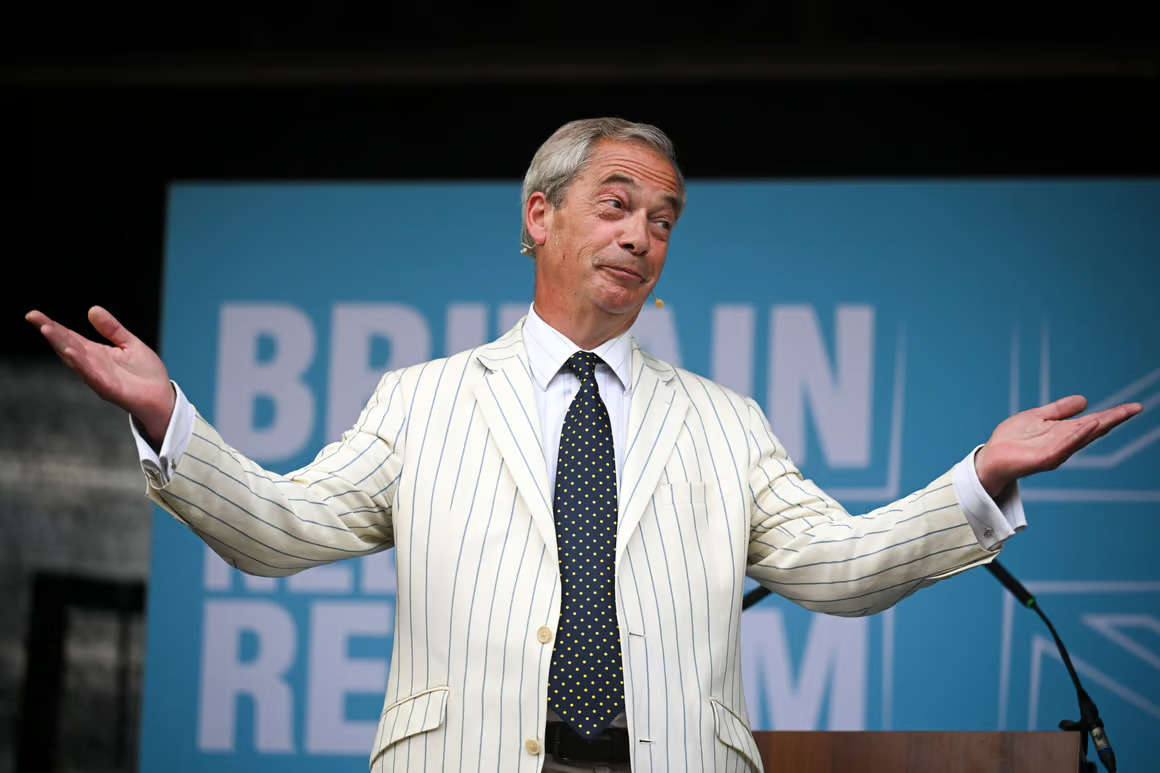Nigel Farage, leader of Reform UK, has been attempting to distance himself from problematic elements within his party amid ongoing allegations of racism and sexism. He has faced criticism over his past comments on various figures, including Vladimir Putin and Andrew Tate.
Farage defended Tate, calling him a significant voice for young men, but expressed his horror at the charges against Tate in Romania, which include human trafficking and rape. Despite these controversies, Reform UK is still polling strongly, potentially threatening the Conservative Party in the upcoming general election.
Farage has vehemently denied accusations that he is inciting prejudice for political gain, even as the party faces further scrutiny. A fresh setback occurred when Liam Booth-Isherwood, a candidate for the Erewash constituency, resigned and pledged his support for the Conservatives, citing widespread racism and sexism within Reform UK.
Booth-Isherwood criticized the party leadership for failing to address these serious issues, which he felt made the party morally untenable.
Farage’s campaign has been marked by significant challenges, including an incident where protesters displayed a banner featuring Putin’s image during a rally in Clacton. This incident underscored the criticism Farage has faced over his comments about Russia and Putin.

Nigel Farage
Additionally, Farage has had to address reports of foreign interference in the election, specifically allegations of Russian efforts to support Reform UK, which he dismissed as unfounded.
The party’s struggles have also included the controversial behavior of several of its candidates. Reform UK has withdrawn support for three candidates following revelations of racist and prejudiced remarks. However, it continues to back others who have made similarly contentious statements.
This includes Antony Antoniou, who shared a video with anti-Semitic implications, Jacqui Harris, who likened Israel to Nazi Germany, and Charles Bunker, who openly described himself as an “Islamophobe.”
Farage has faced intense media scrutiny, particularly from Sky News’ Trevor Phillips, who accused him of stoking prejudice to advance his political objectives.
Farage angrily denied this, asserting that his long-standing acquaintance with Phillips should disprove such accusations. He also noted that individuals with extreme views who previously supported the British National Party might be drawn to Reform UK but would be expelled upon discovery.
The ongoing controversies and internal strife within Reform UK present a significant challenge for Farage as he navigates the final week of the general election campaign. Despite his efforts to distance himself from problematic elements and defend his party’s integrity, the allegations and resignations continue to cast a shadow over his leadership and the party’s future prospects.
